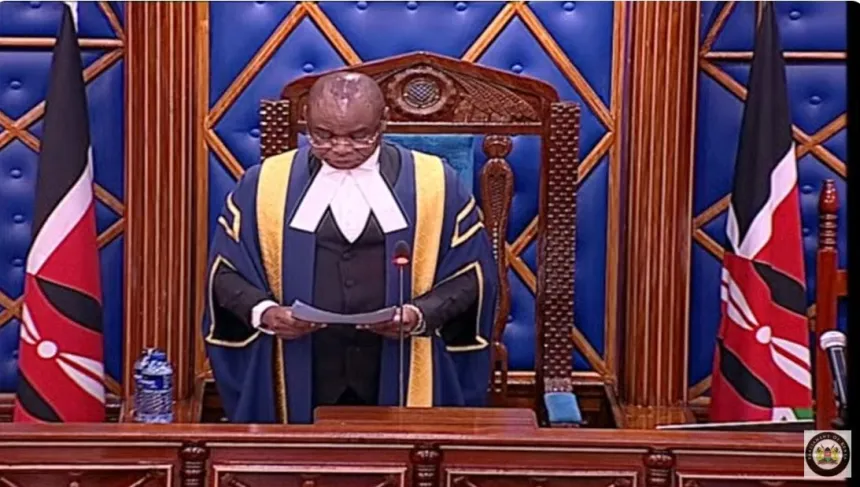The Senate has invited Kenyans to submit their views on a proposed constitutional amendment bill that seeks to expand its legislative and oversight powers, in a bid to shake off its long-standing reputation as an “idle House.”
In a public notice, Senate Clerk Jeremiah Nyegenye urged citizens to submit written memoranda on the Constitution of Kenya (Amendment) Bill, 2025, which had its first reading last week. The Bill is co-sponsored by Senate Majority Leader Aaron Cheruiyot (Kericho) and Minority Leader Stewart Madzayo (Kilifi), and was drafted by the Justice and Legal Affairs Committee (JLAC) chaired by Hillary Sigei (Bomet), with input from senior counsels Okongo Omogeni (Nyamira) and Tom Ojienda (Kisumu).
Speaker Amason Kingi referred the proposed law to JLAC for public participation, with the committee expected to hold hearings in all 47 counties to rally national support. According to Nyegenye, the Bill addresses “challenges of constitutional design and architecture” that require reform to strengthen devolution and achieve greater harmony between the Houses of Parliament.
If passed, the Bill would significantly enhance the Senate’s mandate. It proposes granting senators authority to approve the national budget, vet constitutional office holders, originate legislation, and veto decisions made by the National Assembly. Senators would also participate in the removal of state officers and establish a County Assembly Fund to grant MCAs financial autonomy.
Currently, the Senate is largely limited to county-related matters, a role critics say leaves it underpowered. The reforms would elevate it closer to the status of an upper house, similar to the U.S. Senate. Opposition leader Raila Odinga has voiced support for the initiative, saying in May, “We would like to see our Senate work like that of the US – give it proper powers and responsibilities.”
The Bill proposes that allocation Bills may originate in the Senate while appropriation Bills may begin in the National Assembly, with each chamber having powers to amend or veto the other’s decisions. Proponents argue this will ensure a more balanced bicameral system.
Ultimately, the reforms aim to strengthen devolution and entrench bicameralism as a cornerstone of Kenya’s constitutional order.

